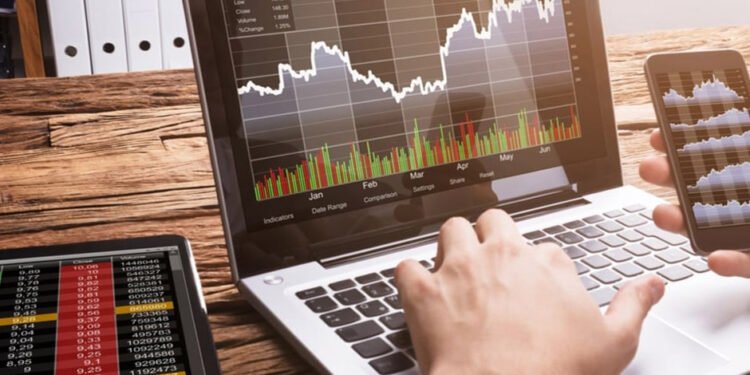Investing in international stocks is an exciting way to diversify your portfolio and gain exposure to global markets. But before you can start buying shares of companies listed outside your country, there are a few steps you need to take. The first crucial step is to understand the process of opening a demat account. Here is the process of opening a Demat account and how you can begin trading in international stocks, all explained in a simple and conversational tone.
Why Do You Need a Demat Account to Trade in International Stocks?
Benefits of a Demat Account
Opening a Demat account offers several benefits that are essential for both novice and experienced traders:
● Easy Accessibility:
You can access your investments from anywhere, at any time, with the click of a button.
● Reduced Paperwork:
Say goodbye to the hassle of handling physical certificates, which can be lost or damaged.
● Faster Transactions:
Buying and selling shares is quicker when done electronically through your Demat account.
● Lower Costs:
Physical certificates often come with high transaction fees, which you can avoid with a Demat account.
Having a demat account linked to a trading account is essential for trading in international stocks. This account is where you execute trades, manage your funds, and track your portfolio.
Step-by-Step Guide to Demat Account Opening
Ready to get started on your demat account opening journey? Here is a step-by-step guide to help you open a Demat account and start trading in international stocks:
1. Choose a Reliable Depository Participant (DP)
A Depository Participant (DP) is an agent of the depository that facilitates Demat account services for investors. When choosing a DP, consider factors like their reputation, customer support, service charges, and the range of services they offer.
2. Fill Out the Application Form
Once you have selected your DP, fill out the Demat account opening form. Most DPs offer online forms, making it easy for you to provide your details and submit your application without the need to visit their office physically.
3. Submit Required Documents
To complete the demat account opening process, you’ll need to provide certain documents as proof of identity and address. These documents typically include:
● Identity Proof:
Passport, voter ID, driving license, or Aadhar card.
● Address Proof:
Utility bills, bank statements, or rental agreements.
● Bank Account Details:
A cancelled cheque or bank passbook.
4. Verification Process
After submitting your documents, your DP will initiate the verification process. This may involve a quick in-person or online verification to confirm your provided details. You may be asked to verify your identity through a video call during this step.
5. Receive Your Demat Account Number
Upon successful verification, your DP will provide you with a Demat account number, also known as a Beneficial Owner Identification Number (BO ID). This number is crucial because you’ll need it for all your trading transactions.
How to Start Trading in International Stocks?
With your Demat account successfully opened, you’re now ready to dive into international stocks. Here’s how you can start trading on global exchanges.
1. Link Your Demat Account with a Trading Account
To trade in international stocks, you must link your Demat account to a trading account that allows access to global markets. This trading account bridges your funds and your Demat account, enabling you to buy and sell shares.
2. Fund Your Trading Account
Next, you need to deposit funds into your trading account. Most trading platforms accept multiple currencies, so understand the exchange rates and any fees associated with converting your money into the required currency.
3. Choose International Stocks to Invest In
Research is key when choosing which international stocks to invest in. Consider the company’s market position, financial health, growth potential, and how it aligns with your investment strategy. Some popular options include stocks from sectors like technology, pharmaceuticals, and renewable energy.
4. Execute Your First Trade
Once you’ve chosen the stock you want to invest in, executing your trade is time. Enter the number of shares you wish to buy and confirm the transaction. The shares will be credited to your Demat account within a few business days.
5. Monitor Your Investments
The stock market can be volatile, and international stocks are no exception. Keep a close eye on your investments and stay informed about global market trends. Adjust your investment strategy as needed to maximise your returns.
Things to Consider When Trading International Stocks
1. Exchange Rates and Currency Fluctuations
One of the major factors to consider when trading in international stocks is the impact of exchange rates. Currency fluctuations can affect your profits or losses, so monitoring these rates closely is wise.
2. Different Market Regulations
Each country has its own set of regulations and trading rules, which can vary significantly. Ensure you know these regulations to avoid any legal issues or misunderstandings.
3. Market Timings
International stock markets operate in different time zones. This means that the trading hours for international markets will differ from your local market. Plan your trades accordingly to take advantage of the best opportunities.
4. Diversification Benefits
Investing in international stocks provides an excellent opportunity to diversify your portfolio. By spreading your investments across different markets, you reduce the risk associated with your home country’s economic downturn.
Benefits of Trading International Stocks
1. Access to Global Brands
By trading international stocks, you can access some of the world’s leading brands and companies, which might not be listed in your domestic stock market.
2. High Growth Potential
Emerging markets and sectors like technology, healthcare, and renewable energy often have high growth potential, which can lead to significant returns on your investments.
3. Risk Diversification
When you diversify your investments across various global markets, you are better positioned to handle volatility in one market, as gains in another can offset losses.
4. Exposure to Currency Gains
Currency fluctuations can work in your favour when investing in international stocks, especially if your home currency depreciates against the currency of the country in which you have invested.
Conclusion
Opening a Demat account and trading in international stocks might seem like a complex process at first, but it becomes much more manageable with the right approach. The key is to start with the basics of demat account opening, ensure you have all the necessary documentation, and choose the right platform to facilitate your trades.












